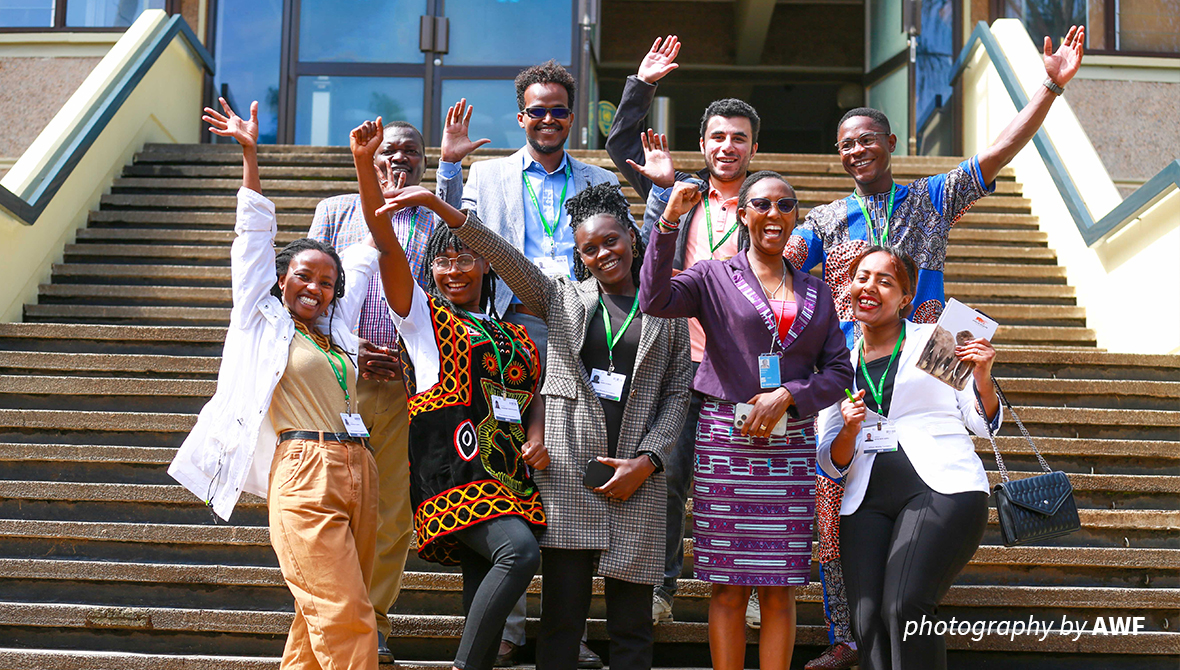SBSTTA25 Explained: Shaping Environmental Policy Through Science

In the heart of Nairobi, Kenya, a pivotal gathering is taking place, one that holds the keys to the future of our planet’s biodiversity and environmental harmony. It’s the 25th meeting of SBSTTA, the Subsidiary Body on Scientific, Technical, and Technological Advice to the Convention on Biological Diversity, and it’s not just another conference. This assembly of over 600 experts and policymakers from 135 countries is a crucial moment in the ongoing battle to tackle the triple planetary crisis, with an emphasis on biodiversity loss.
SBSTTA stands as the vanguard of scientific insight, its purpose far-reaching and profound. Tasked with evaluating the scientific, technological, and technical strides made in the world and how they harm or benefit biodiversity, SBSTTA pores over reports and assessments, deciphering the implications these findings hold for our existing policies and practices, such as the recently released IPBES Invasive Alien Species Report, a groundbreaking assessment that underscores the urgency of our conservation efforts.
This meeting is a culmination of collective dedication and a shared commitment to safeguarding our planet’s biological diversity. Countries from all corners of the globe have gathered to assess the progress made, particularly following the adoption of the Kunming- Montreal Global Biodiversity Framework and the need to develop a robust monitoring framework while ensuring National Biodiversity Action Plans (NBSAPs) align with the Kunming-Montreal Global Biodiversity Framework. These plans, often referred to as roadmaps for environmental conservation, outline strategies vital for sustainable development at the national level.
This blog seeks to delve into the intricate workings of SBSTTA and explore the profound implications of science to policies while uncovering the challenges and solutions within our grasp. Simangele Msweli, AWF’s Youth Program Senior Manager, shares her reflections on how each of us can get involved, making a difference in this critical juncture of environmental conservation.
Why does SBSTTA matter for Africa?
In essence, SBSTTA ensures that policies are informed by the best available science at the time. This is vital because effective policies must be grounded in cognizance of the direct and indirect drivers of biodiversity loss, which are complex and changing over time. This is particularly important for Africa, as it highlights the platform's significance and challenges. While SBSTTA contributes to sound policymaking, it also underscores the need to address African scientific data gaps. Many scientific assessments require data that is often lacking on the continent. Therefore, this serves as a platform for identifying these gaps and focusing on closing them to ensure policies are as well-informed as possible. We are also in a world of rapidly evolving technologies; while some have immense potential in addressing environmental challenges, some may have detrimental effects, and SBSTTA is tasked with the responsibility of reviewing such.
How is SBSTTA different from other meetings, such as the Conference of the Parties (COP)?
The unique aspect of SBSTTA is that it brings together scientists, experts, and policymakers, making it a platform where there is less political tension and more technical review of scientific findings. Unlike in the Conference of the Parties (COP), where negotiations are political, SBSTTA focuses on the science, what it says, what it is not saying, and what policy recommendations can be made from the best available knowledge. This allows countries to iron out their differences based on scientific evidence.
The value of this annual meeting has become increasingly apparent. While SBSTTA does not undertake scientific assessments, it relies on institutions like the Intergovernmental Science-Policy Platform on Biodiversity and Ecosystem Services (IPBES). There were instances when these assessment reports were not as readily accepted as many countries regarded them as having not been conducted in a manner representative of all regions and all sources of knowledge. Over time, policymakers have become more receptive to scientific findings knowing that scientists from their countries have contributed to them. Furthermore, the continued rise in African countries joining the IPBES and African scientists contributing to its assessments has facilitated greater acceptance of the science. In short, the scientific community and policymakers align more closely, which is vital for informed policy development.

How can young people engage meaningfully in SBSTTA processes?
Engaging young people in SBSTTA processes is crucial for the future of biodiversity and environmental conservation. There are several ways for them to get involved meaningfully.
First, students in science fields should actively participate by conducting research, contributing to regional/global scientific assessments, and offering their expertise on various biodiversity-related topics to their national SBSTTA focal points.
Most importantly, African countries should invest in developing young scientists. By supporting and nurturing scientific talent, the continent can reduce the reliance on external research and address data gaps. Investing in research and creating opportunities for young scientists to flourish is vital for building the skills necessary to address the data gaps in Africa. Ultimately, empowering young people to engage with SBSTTA processes benefits the youth and strengthens the region's scientific foundation of biodiversity policies.
What is your rallying call to Africa?
SBSTTA25 stands as a beacon of hope for every African, particularly the youth, who represent the continent's majority and future. As Africa continues its growth trajectory, it becomes increasingly vital to base our decisions on rigorous scientific foundations, especially those shaping the environment and biodiversity. SBSTTA demonstrates the power of scientific knowledge in policy formulation, highlighting the need for scientific-led decisions in environmental conservation and all facets of development plans. It is a shared responsibility for every citizen, whether a scholar or not, to actively engage and support these scientific processes. As we move forward, a whole-of-society approach is imperative, where everyone recognizes the importance of SBSTTA, takes ownership of scientific knowledge, and actively participates in the collective efforts that will drive Africa toward a sustainable and prosperous future. By embracing the wisdom of science and fostering a sense of shared responsibility, Africa can pave the way for a harmonious coexistence between its people and its precious natural resources.